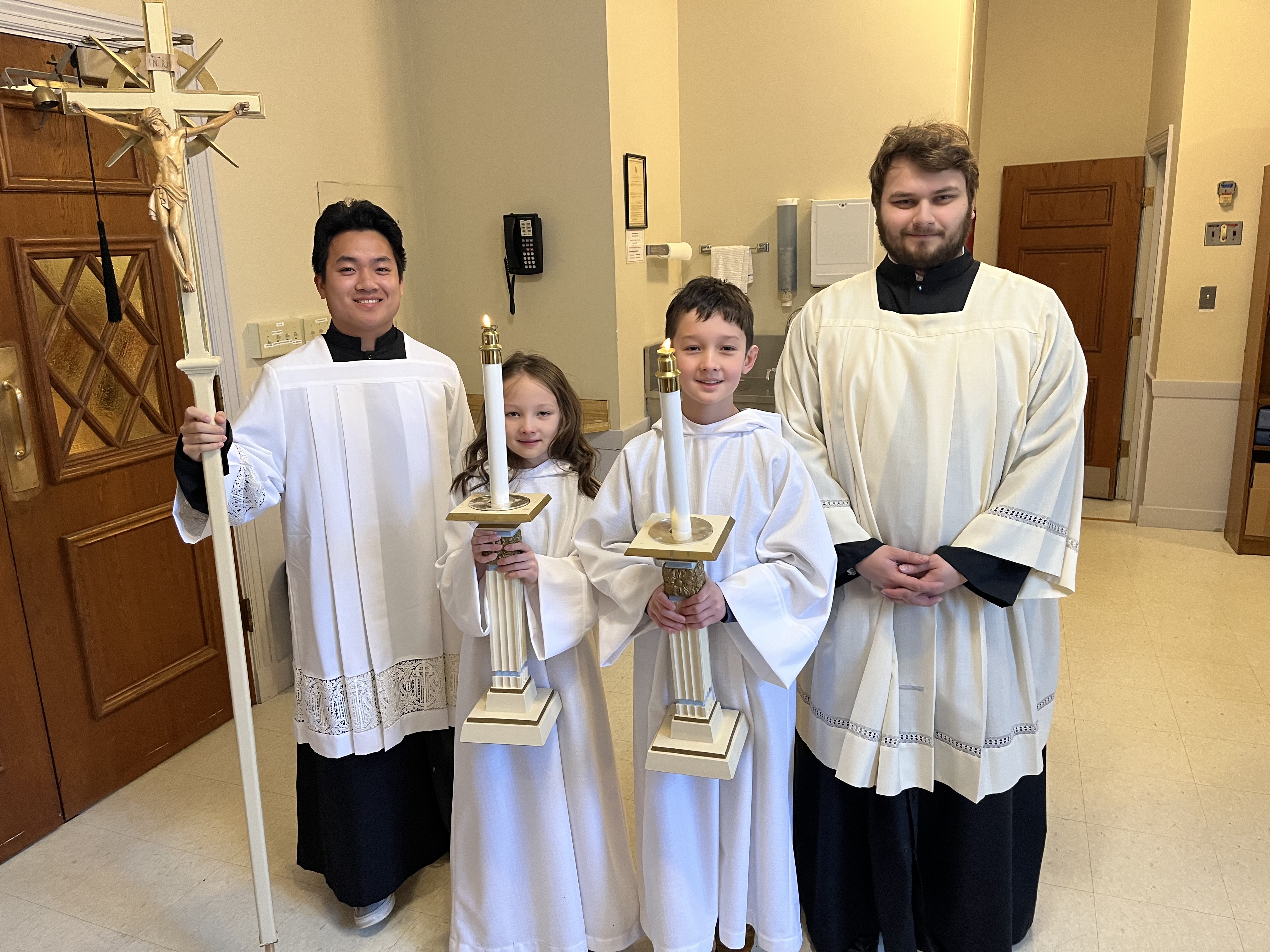How MSP Transformed Volunteer Coordination at Good Shepherd Parish


Good Shepherd Catholic Parish is a small but growing faith community that recently faced considerable challenges in volunteer scheduling. Situated in the Boston suburb of Wayland, Massachusetts, the parish was using a cumbersome old-school method of creating and managing ministry schedules for its four weekend liturgies at two worship sites. Communication was laborious, sub requests burdened staff, and the effects of the pandemic had exacted a toll on its volunteer pool.
These obstacles hindered the efficiency of volunteer coordination and impeded church growth, according to Deacon Geoff Higgins, a permanent deacon at Good Shepherd. Once the parish adopted and implemented Ministry Scheduler Pro, however, Good Shepherd was able to overcome these hurdles and streamline the scheduling process. Here's a closer look at how this impressive transformation came about.
The old system: slow and labor-intensive
 Before adopting MSP, Good Shepherd’s administrator would painstakingly prepare two Doodle polls – one for liturgical ministers, another for altar servers – and enter all service dates and times for a two-month period. Email blasts were sent to volunteers, who then would indicate their availability in Doodle. The administrator would track these responses in an Excel sheet and send follow-up email to those who did not respond.
Before adopting MSP, Good Shepherd’s administrator would painstakingly prepare two Doodle polls – one for liturgical ministers, another for altar servers – and enter all service dates and times for a two-month period. Email blasts were sent to volunteers, who then would indicate their availability in Doodle. The administrator would track these responses in an Excel sheet and send follow-up email to those who did not respond.
Once enough volunteers had replied, the administrator would export the data to a fresh Excel spreadsheet, format it, and manually assign volunteers to specific Masses. Multiple rounds of draft schedules and corrected schedules would be sent out as volunteers replied with change requests. The process was labor-intensive, email-dependent, and time-consuming – and the cycle repeated every two months.
That method “had been in place for many years and was not a sustainable twenty-first century model,” said Deacon Geoff. “It should have been retired long ago.”
Time for a serious upgrade
Recognizing the system’s limitations, Good Shepherd began seeking a software solution. A ministry scheduler at a nearby church enthusiastically recommended MSP, so the parish decided to give it a whirl.
To ensure a successful transition to MSP, Good Shepherd focused on two key aspects: training and acceptance. After loading volunteer data into MSP, a few users were selected to test the software before going live, and their feedback helped refine the process. As MSP was introduced to all volunteers, some users experienced a learning curve, but patience and practice helped them acclimate to the MSP app. By the third scheduling period, “everything settled down,” said Deacon Geoff.
The MSP difference: streamlined and efficient scheduling

Deacon Geoff identifies three key MSP benefits that have vastly improved scheduling at Good Shepherd: volunteer flexibility, system scalability, and streamlining of the entire scheduling process.
Some of the immediate advantages of MSP derived from the ability of volunteers to designate their own scheduling preferences and availability.
“MSP makes it so easy for volunteers to designate a preferred Mass time that there is little to no challenge in managing volunteers at two worship sites,” said Deacon Geoff. “Most volunteers have a preferred Mass or Masses that they regularly attend, so they schedule themselves for those times exclusively.”
Church volunteerism, of course, is about something bigger than software, he stressed. It must result primarily from a desire to “give back to the faith community in a special way” through service as a fruit of one’s faith. But once they respond to that desire, he added, MSP’s ease of use smooths the volunteer’s path toward full and active participation.
“If the ministry software is clunky or non-intuitive for a user, then people will be reluctant to engage fully in whatever they have volunteered to do,” noted Deacon Geoff. “MSP eliminates that issue completely since the user has complete control. That convenience allows the volunteer to focus on faith and not frustration.”
And as volunteers step up to serve, MSP handles the larger pool with ease.
“MSP can easily scale up, so we will not have to be concerned with any user limitations as more people respond or return to volunteering,” he pointed out. The convenience of a central database that is accessible to everyone is also a huge plus.

Furthermore, MSP eliminated redundant steps in the former scheduling process and tightened the time frame for creating a new schedule, since volunteers can enter their availability closer to the start date.
“Our ministry scheduling time has been significantly reduced across the board,” said Deacon Geoff. “Before MSP, we would begin the process of scheduling weeks before the next scheduling period. Now we can turn a new two-month schedule around in about a week.”
Moreover, staff and volunteers are enjoying the additional benefits that MSP offers, such as the ability to request substitutes and receive automatic reminders of scheduled service dates – features that simply weren’t available under the previous system.
The new ‘go-to’ tool for scheduling
With Ministry Scheduler Pro, Good Shepherd Parish has revamped its volunteer scheduling methods into a streamlined process that empowers its parishioners to focus on what truly matters – serving their congregation.
“We are pleased with the results in productivity and communication,” Deacon Geoff said. “We highly recommend MSP as the ‘go-to’ scheduling tool for any size parish.”
If you're facing challenges with manual scheduling, then perhaps it’s time to revolutionize your process too. Discover how Ministry Scheduler Pro can transform your scheduling and elevate your volunteer ministries by watching our two-minute overview video and make the first step toward taking the pain out of ministry scheduling.
